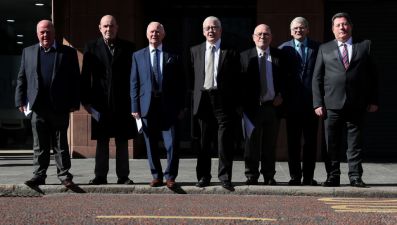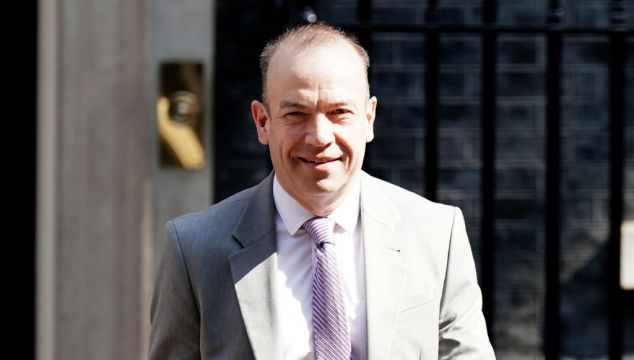A controversial UK government Bill on the legacy of the Troubles is “not a blanket amnesty”, Britain's Northern Ireland secretary Chris Heaton-Harris has insisted.
Mr Heaton-Harris has written to US Congress members who had expressed concerns that the UK government's plans would “deny justice to thousands of families”.
But Mr Heaton-Harris has responded that he believes the proposed plans meant that “the prospect of criminal justice outcomes will remain open for individuals who refuse to assist in the provision of information for bereaved families and victims and survivors”.
The Bill has proved highly contentious, with victims’ groups, all the main Stormont parties and the Irish Government opposed to it.
The draft legislation would establish a new commission aimed at uncovering facts around unsolved deaths relating to the Troubles.
One of the most controversial aspects of the new legal framework is the offer of immunity from prosecution for perpetrators who co-operate with the commission.
The letter from 27 members of the US Congress earlier this year voiced “strong concern and disappointment” over the progression of the “dangerous legislation”.
In his letter of response, Mr Heaton-Harris said current mechanisms for dealing with legacy case are providing outcomes to a “very small number of those affected”.
He added: “Within the Police Service for Northern Ireland’s Legacy Investigation Branch, there is a caseload of approximately 1,000 cases – with ever-dwindling prospects of successful prosecutions – which will take many years to conclude.
“There are approximately 700 civil cases backlogged in a judicial system ill-equipped to process such numbers.”
He added: “The UK government’s Bill will establish an Independent Commission for Reconciliation and Information Recovery (ICRIR) to conduct reviews into Troubles-related deaths and serious injuries, with the primary objective of providing information to families, victims and survivors who request it.”
Mr Heaton-Harris said the fact that Northern Ireland’s former Lord Chief Justice Lord Declan Morgan had been appointed Chief Commissioner of the ICRIR was “a demonstration of how seriously the UK government is taking the establishment of truly independent and effective legacy mechanisms that can deliver for victims, survivors and families”.
He added: “In support of its investigative processes, and to help facilitate the provision of information, the independent commission will be able to offer immunity from prosecution to individuals who cooperate with the ICRIR’s inquiries.
“To be absolutely clear, this is not a blanket amnesty for Troubles-related offences.
“The Bill ensures that an individual will only be granted immunity from prosecution on a case-by-case basis, and only where the ICRIR – having taken into account all relevant evidence in its possession – is satisfied that the person applying has provided an account that is true to the best of their knowledge and belief.
“For individuals who are not granted immunity from prosecution, the ICRIR will consider whether the evidence available following its investigative process is sufficient to refer the cases to the relevant independent prosecutor for consideration.

“In all cases referred to the ICRIR, it will draft and publish a report with the ability to make findings to a lower threshold of proof than that required to secure criminal prosecutions.”
Mr Heaton-Harris continued: “Far from concealing the truth of the past and denying justice, this will mean that more families will receive a measure of accountability and acknowledgement through the provision of information than is currently the case.
“However, the Bill is clear that the prospect of criminal justice outcomes will remain open for individuals who refuse to assist in the provision of information for bereaved families and victims and survivors.”







